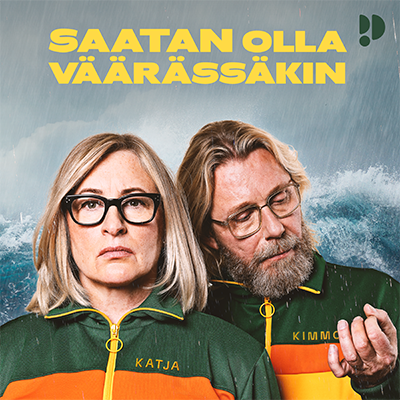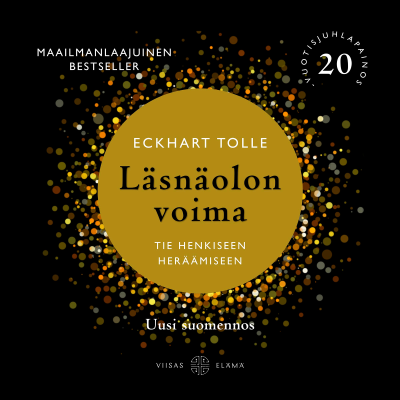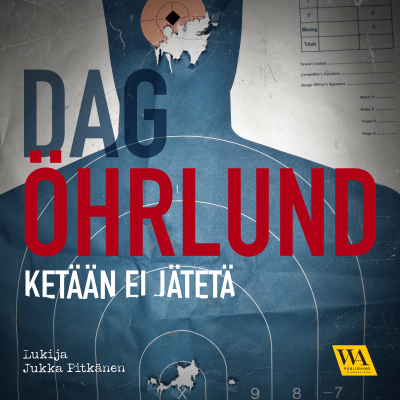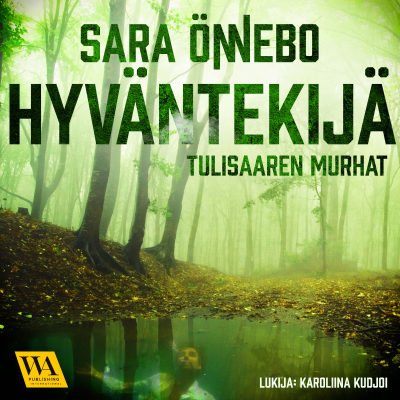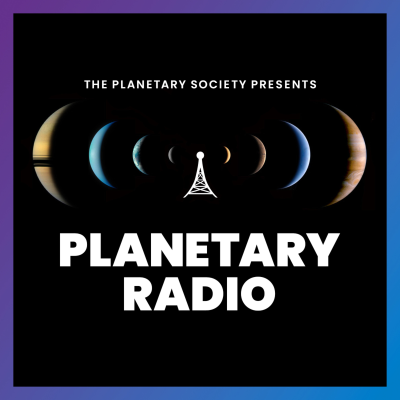
Planetary Radio: Space Exploration, Astronomy and Science
Podcast by The Planetary Society
Rajoitettu tarjous
2 kuukautta hintaan 1 €
Sitten 7,99 € / kuukausiPeru milloin tahansa.
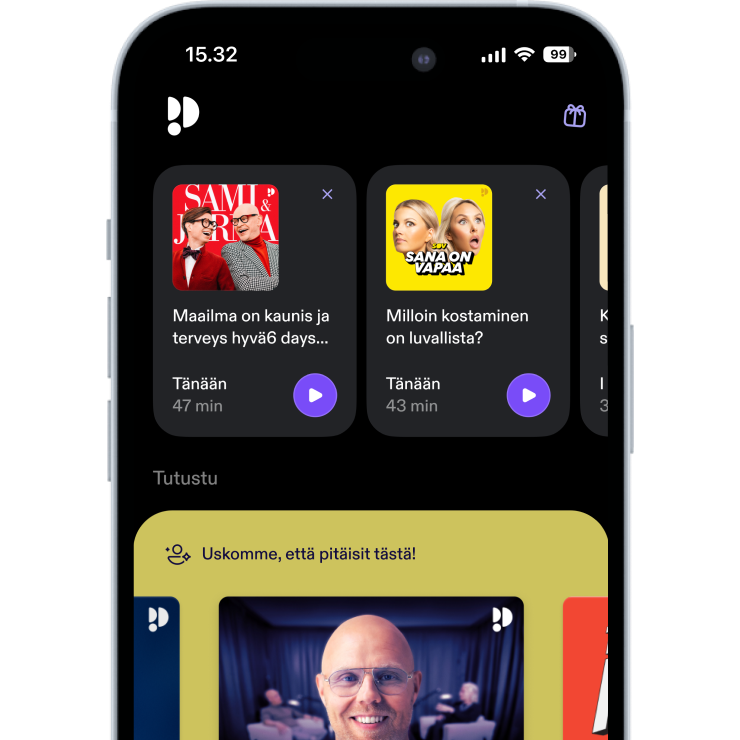
Enemmän kuin miljoona kuuntelijaa
Tulet rakastamaan Podimoa, etkä ole ainoa
Arvioitu 4.7 App Storessa
Lisää Planetary Radio: Space Exploration, Astronomy and Science
Planetary Radio brings you the human adventure across our Solar System and beyond. We visit each week with the scientists, engineers, leaders, advocates, and astronauts who are taking us across the final frontier. Regular features raise your space IQ while they put a smile on your face. Join host Sarah Al-Ahmed and Planetary Society colleagues including Bill Nye the Science Guy and Bruce Betts as they dive deep into space science and exploration. The monthly Space Policy Edition takes you inside the DC beltway where the future of the US space program hangs in the balance. Visit planetary.org/radio for an episode guide and much more.
Kaikki jaksot
1277 jaksotWhat do “Star Trek,” space advocacy, and the fight to save NASA science have in common? In this episode of Planetary Radio, we share a special panel recorded live at STLV: Trek to Vegas 2025, featuring Robert Picardo, actor and Planetary Society board member who played the Emergency Medical Hologram on ”Star Trek: Voyager,” and Tim Russ, actor, telescope enthusiast, and Voyager’s Lt. Tuvok. They’re joined by Andrew Pauly, director of marketing at The Planetary Society, and Ambre Trujillo, the Society’s digital community manager, for a conversation about how science fiction inspires real-world space exploration — and how fans can take action to protect it. Later in the episode, Jack Kiraly, director of government relations at The Planetary Society, discusses the recent wave of NASA employee departures and what it could mean for the future of space science. Then, in What’s Up, our Chief Scientist Bruce Betts reflects on the end of NASA’s Lunar Trailblazer mission. Discover more at: https://www.planetary.org/planetary-radio/2025-a-star-trek-future [https://www.planetary.org/planetary-radio/2025-a-star-trek-future] See omnystudio.com/listener [https://omnystudio.com/listener] for privacy information.
Just three interstellar objects have ever been detected in our Solar System, each arriving from the depths of interstellar space. In this episode, we explore the latest: 3I/ATLAS, a newly discovered interstellar comet first spotted on July 1, 2025. Bryce Bolin, research scientist at Eureka Scientific, joins host Sarah Al-Ahmed to share what makes this object special. As one of the few astronomers who has studied all three known interstellar objects—1I/ʻOumuamua, 2I/Borisov, and now 3I/ATLAS—he offers unique insight into how these rare visitors expand our understanding of planetary systems beyond our own. We also check in with Bruce Betts, chief scientist of The Planetary Society, for a look at the upcoming ESA and JAXA’s Comet Interceptor mission, which may one day chase down a future interstellar comet. Discover more at: https://www.planetary.org/planetary-radio/2025-3i-atlas [https://www.planetary.org/planetary-radio/2025-3i-atlas] See omnystudio.com/listener [https://omnystudio.com/listener] for privacy information.
The 2020s will be a decisive decade for in-space nuclear power. So argues Dr. Bhavya Lal, whose new report reframes the conversation around a simple idea: power, not propulsion, is nuclear's most immediate and disruptive capability. Power is what enables humans to stay and build on distant locales; without an abundance of it, she warns, we will never be more than visitors. But in an era of super heavy-lift capability, does this vision still require a nuclear solution, or can we simply brute-force our future in space with cheaper alternatives? Discover more at: https://www.planetary.org/planetary-radio/bhavya-lal-space-nuclear-power See omnystudio.com/listener [https://omnystudio.com/listener] for privacy information.
How do astronauts get quality sleep in space? Erin Flynn-Evans, director of the Fatigue Countermeasures Laboratory at NASA Ames Research Center, joins Planetary Radio to explore how her team studies sleep, fatigue, and circadian rhythms to keep astronauts healthy and mission-ready. She shares how her team translates sleep science into actionable strategies for NASA crews, and how a chance job as a sleep technician led her on a path to spaceflight research. Later in the show, Casey Dreier, The Planetary Society’s chief of space policy, and Jack Kiraly, our director of government relations, provide a quick update on NASA’s budget and what it means for the agency’s future. Then, Bruce Betts, our chief scientist, joins us for What’s Up to explore how and why our robotic spacecraft sometimes need to power down and rest. Discover more at: https://www.planetary.org/planetary-radio/2025-sleep-in-space [https://www.planetary.org/planetary-radio/2025-sleep-in-space] See omnystudio.com/listener [https://omnystudio.com/listener] for privacy information.
On July 14, 2015, NASA’s New Horizons spacecraft made its historic flyby of Pluto, transforming our understanding of this distant world. Ten years later, we’re celebrating that iconic moment and the mission that made it possible. We begin with Alan Stern, principal investigator of the New Horizons mission, who reflects on the mission’s origins, its most surprising discoveries, and what comes next as New Horizons continues its journey through the Kuiper Belt. Then we check in with Adeene Denton, NASA postdoctoral program fellow at the Southwest Research Institute, who just returned from the “Progress in Understanding the Pluto System: 10 Years After Flyby” conference held at the Johns Hopkins University Applied Physics Laboratory. Adeene shares highlights from the event, which brought together scientists to explore new results from New Horizons, JWST, Hubble, and ground-based observatories on Pluto, Charon, and the broader Kuiper Belt. Finally, Planetary Society Director of Government Relations Jack Kiraly joins us with a major update on the ongoing fight to protect NASA science from devastating budget cuts. And don’t miss What’s Up with our Chief Scientist, Bruce Betts. We’re talking Arrokoth, the most distant Kuiper Belt object New Horizons visited after Pluto. Discover more at: https://www.planetary.org/planetary-radio/2025-new-horizons-pluto-flyby-10th-anniversary [https://www.planetary.org/planetary-radio/2025-new-horizons-pluto-flyby-10th-anniversary] See omnystudio.com/listener [https://omnystudio.com/listener] for privacy information.

Arvioitu 4.7 App Storessa
Rajoitettu tarjous
2 kuukautta hintaan 1 €
Sitten 7,99 € / kuukausiPeru milloin tahansa.
Podimon podcastit
Mainoksista vapaa
Maksuttomat podcastit





